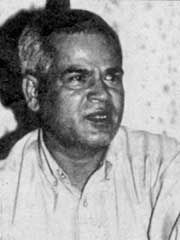 What is your assessment of the post-ceasefire political situation?
What is your assessment of the post-ceasefire political situation? It wasn't unprecedented. Both the government and the Maoist rebels were under pressure to find a way out. The political trend that emerged after the dissolution of the parliament on 22 May last year has pushed the country towards further militarisation.
We need to understand that peace and political processes can progress together, like in Sri Lanka. In our case, after the dissolution of the parliament, local bodies were turned into political entities without popularly elected representatives. After the king took executive powers that sidelined other forces, there was a kind of political vacuum.
After 22 May, every development helped marginalise political institutions. This could have worked favourably for the Maoists because they are now in a position to share power directly with the palace. The palace benefits by taking credit for resolving the problem.
Does this mean political parties will be completely sidelined?
The ceasefire declared by the government and the Maoist rebels has exposed only one part of the equation. Future politics can't be confined between the palace and the Maoists. Popular opinion towards democratic rights creates space for political parties. They should not have allowed the derailment of the constitutional process. They failed. During the talks, both the king and the Maoists will need support from the political parties to strengthen their respective positions. The role of the political parties is indispensable to negotiations.
What broader issues need to be addressed now?
First, there is a need for life to get back to normal. Second, people displaced by the insurgency need to be rehabilitated and destroyed infrastructures must be rebuilt. Only then should we move towards more complex issues like the formation of an interim government and holding elections to the constituent assembly.
Democratic forces are poised to gain while opting for a constituent assembly. If we had a parliament, we could have a constituent assembly simply by passing a resolution. But instead what we have is a vacuum that complicates the constitutional and technical aspects.
How likely is it that a future roundtable conference will end in chaos?
You must keep an open mind to resolve armed conflict. So, the conference should not be limited as an exercise to wield power. If that happens, Nepali society will look for other alternatives. It's still unclear how issues brought up at the conference will be resolved. We must not neglect the issue of disarming the rebels. We lack credible modalities.


